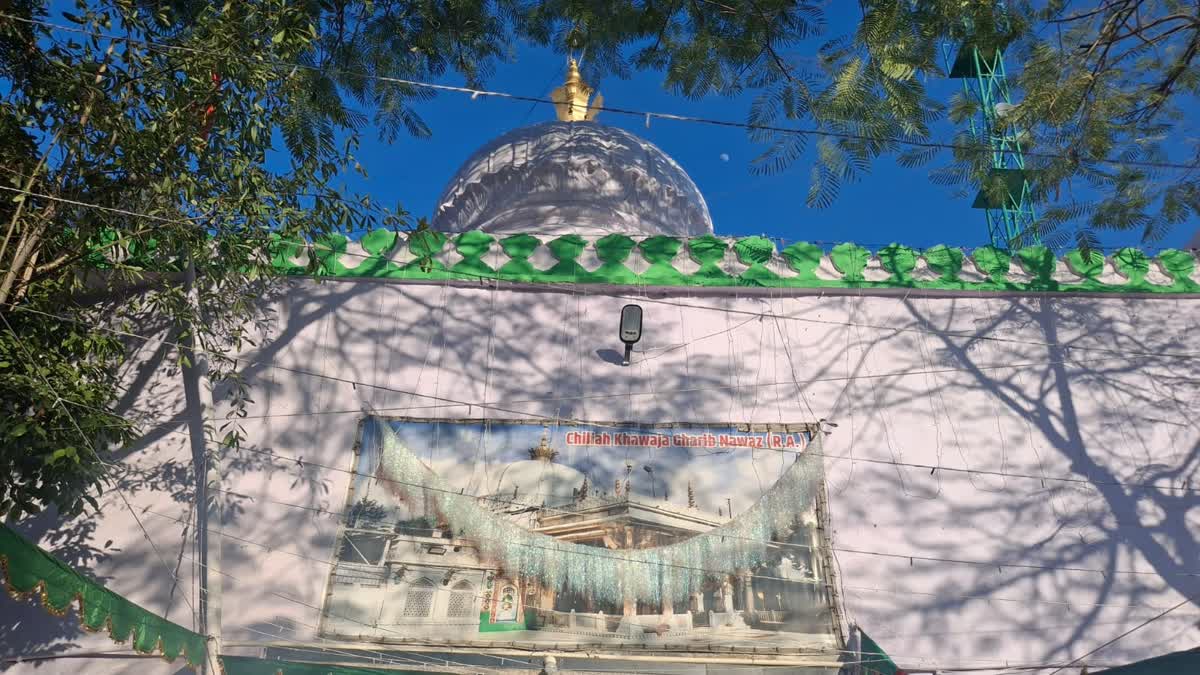Ajmer: The city of Ajmer in Rajasthan is witnessing an overwhelming flow of devotees, as tens of thousands gather to pay homage at the revered shrine of Sufi saint Khwaja Moinuddin Chishti on the 13th century sufi saint's 813th death anniversary. While most visitors throng the iconic dargah, few are aware of another spiritually significant site connected to the Sufi saint popularly known as Khwaja Garib Nawaz: his 'Chilla'.
Nestled on a hill near Ana Sagar Lake, the Chilla (cave) is where the Sufi saint, according to popular belief, first rested upon arriving in Ajmer, where he dedicated himself to prayer and meditation.
Sufi Saint's First Stopover
“Khwaja Garib Nawaz made a difficult and protracted trek from Sanjar to Ajmer. Upon reaching the city, he chose to live and offer his particular prayers in a cave close to Ana Sagar Lake,” said Syed Iqbal Chishti, a custodian of the Chilla.
He further added, it was here that the saint began interacting with locals, offering solace and spreading messages of love and humanity. His simplicity and spiritual lifestyle captivated the people, who sought his blessings and guidance, Chishti said.
A popular anecdote speaks of a time when someone denied him water from the Ana Sagar Lake. It is believed that Khwaja Garib Nawaz miraculously collected the lake’s water in his vessel. When the person repented and sought forgiveness, Khwaja returned the water, restoring the lake to its original state, it is said.
Legend Of The Weeping Mountain
Chishti recounts the fascinating legend of the weeping mountain. “When Khwaja Garib Nawaz left the Chilla to establish his presence at the current Dargah site, it is believed that the mountain shed tears in sorrow.” He further claimed that the marks of tears were clearly visible to this day. “Visitors can observe tear-like stone formations inside the cave, adding to its mystique.”
